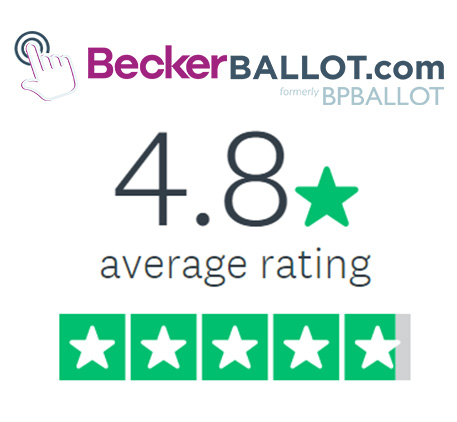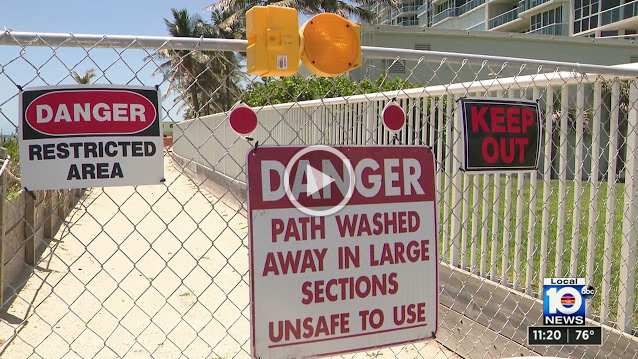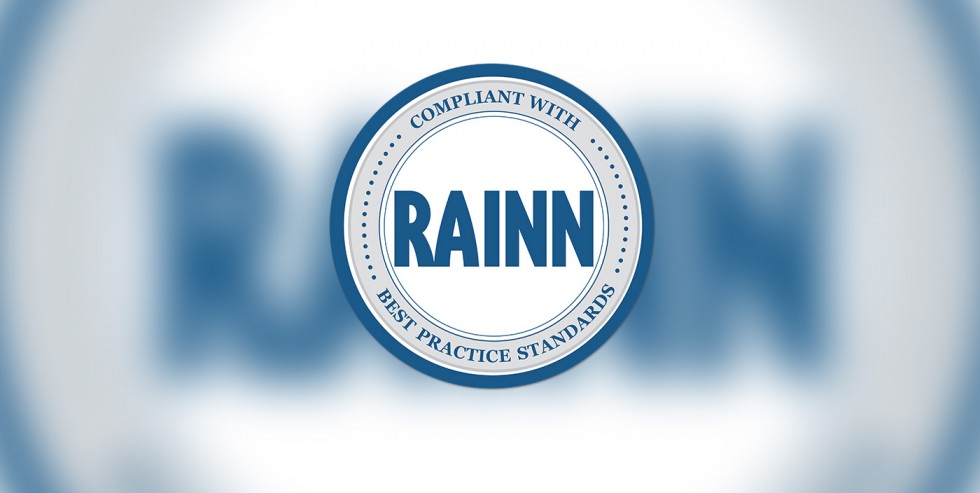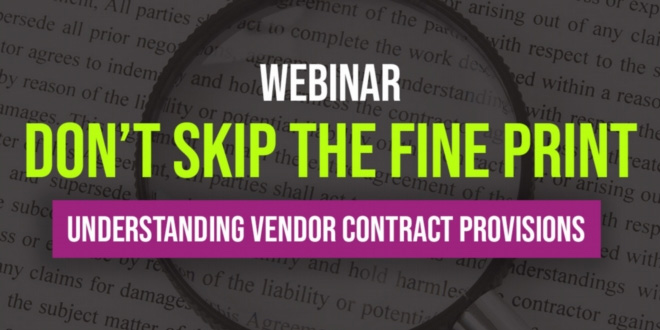This month, we’re thrilled to announce the launch of new community association podcast, “Take it to the Board with Donna DiMaggio Berger.” The podcast explores the reality of life in a community association, what’s really involved in serving on its board, and how to maintain the ever-so-delicate balance of being legally compliant and community spirited. Check out this month’s ‘Did You Know’ section for more information and make sure to subscribe!
Also, an important public service announcement as we all know that the start of Summer coincides with the beginning of Hurricane Season. While our hope each year is that we’re spared from the worst, it’s crucial that your association take necessary steps to ensure its prepared should disaster strike. If you have any questions or are in need of guidance, please reach out to your Becker attorney.
Igniting fireworks on any day, excluding certain holidays, is considered illegal if done without a permit. This month’s featured article, “Addressing ‘Exploding’ Frustrations Related to Fireworks Under New Law,” outlines recommendations for HOAs with concerns about fireworks in their communities.
Of all enforcement options available to an association for violations of its governing documents, the imposition of fines is one that yields many questions due to the strict procedures required to impose a fine. We dig deeper into this topic in, “What is a ‘Fining Committee’ and Who Can Be on It?”
“Should an Association Allow Its Clubhouse, Or Other Common Area, To Be Used for Gambling?” This article weighs the pros and cons, so you can make an informed decision in your community.
Leasing restrictions are at the heart of our last article, “Seagate Condominium Association, Inc. v. Duffy.” Find out why THIS CASE matters.
Mark D. Friedman, Esq. & Jay Roberts, Esq., Editors
-
 Addressing “Exploding” Frustrations Related to Fireworks Under New Law
Addressing “Exploding” Frustrations Related to Fireworks Under New LawSection 791.08, Florida Statutes, took effect on April 8, 2020 and has several implications for Florida homeowners’ associations. The statute provides that fireworks may be lawfully used on certain “designated holidays” which are defined as New Year’s Eve (December 31st), …
Continue Reading →
What is a “Fining Committee” and Who Can Be on It?
Of all enforcement options available to an association for violations of its governing documents, the imposition of fines is one that yields many questions due to the strict procedures required to impose a fine. If the process is not followed properly, it may result in invalidation of the fine, and can also result in…
Should an Association Allow Its Clubhouse, or Other Common Area, to Be Used for Gambling?
By: Elizabeth A. Lanham-Patrie
While there are certain exceptions, generally, any game of chance is considered gambling. Section 849.08, Florida Statutes, defines gambling as follows:
“Gambling.—Whoever plays or engages in any game at cards, keno, roulette, faro or other game of chance, at any place…

Seagate Condominium Association, Inc. v. Duffy
330 So.2d 484 (Fla. 4th DCA 1976)
By: Mark D. Friedman
Leasing restrictions are at the heart of THIS CASE.
The Seagate Condominium had a provision in its governing documents which limited leasing except in hardship situations. Unit owners who wanted to lease objected to the amendment and claimed that this was an invalid restraint against alienation.
The appellate court examined the issue and explained that the rule against restraints on alienation is founded entirely upon considerations of public policy, specifically, the idea that the free alienability of property fosters economic and commercial development. Competing policy considerations, however, have, almost from the inception of the rule, caused exceptions to be carved out of it. Courts in Florida have traditionally reviewed such restraints in terms of their duration, type of alienation precluded, or the size of the class precluded from taking. The rule has long been recognized as precluding only unlimited or absolute restraints on alienation. The test adopted and applied with respect to restraints on alienation and use is reasonableness. The question reviewed was whether the Seagate Condominium’s leasing restriction were reasonable given the context in which it was promulgated, i.e., the condominium living arrangement.
The Court held that the Seagate Condominium’s leasing restriction constituted neither an unlimited nor unreasonable restraint on alienation. The restriction was not unlimited in several respects: it prohibited only a specific form of alienation (leasing); under general but not unlimited circumstances (the condominium association will consider its suspension in hardship for a not unlimited period of time and because it can be terminated at any time by a vote of the condominium unit owners pursuant to the amendment provisions of their Declaration of Condominium). The restriction, moreover, was determined to be reasonable. Given the unique problems of condominium living in general and the special problems endemic to a tourist-oriented community in South Florida in particular, appellant’s avowed objective was to inhibit transiency and to impart a certain degree of continuity of residence and a residential character to their community. The attainment of this community goal outweighs the social value of retaining for the individual unit owner the absolutely unqualified right to dispose of his property in any way and for such duration or purpose as he alone so desires.
So why does THIS CASE matter? If an association has a reasonable leasing restriction in its declaration it will likely be found to be reasonable. One should always consult with the Association’s attorney if questions arise. However, newer leasing provisions have an extra legal hurdle. Since 2005, the Condominium Act has included a restriction on new leasing restriction amendments and their applicability as found in Section718.110(13), Florida Statutes:
Therefore, while leasing restrictions are generally upheld, new restrictions, created through the amendatory process, are subject to the foregoing statute as well.
Question of the Month
Q: I live in Canada and own a condominium unit in Florida. I cannot travel yet to go back to Florida and my condominium board president has blocked me from sending him e-mails. What are my rights to get information about finances, planned maintenance, and minutes of meetings?
Beachside Battle
WPLG Local 10 News
What should be a path to paradise has become a literal line in the sand dividing a local community association and area residents. Local 10 News reached out to Becker Shareholder Ken Direktor to clarify what the issues are and how the ongoing discussion might impact association members.
“The owners all bought with notice of these easements, if they looked at the documents,” said Direktor, who serves as Chair of the firm’s Florida Community Association practice. “It is going to be the association’s burden to perform the maintenance and open the [path], so it can be used for its intended purpose.”
Highlights of the investigation include determining if the community association’s decision to close the path violates Hollywood city code, deciding whether the current residents are required to honor the agreement signed in 1995, addressing potential liability issues for community association members should an injury occur on the pathway, and more.
To watch the full report, please click here.
Your Condo Building Still Can Require Masks & Much More
SunSentinel
For more than a year, condo associations had to become COVID-19 traffic cops for hundreds of thousands of Floridians in high-rises and sprawling complexes. They had to enforce the use of masks, social distancing and rules for pools and other public spaces.
Now the state of Florida has enforcement out of the hands of local governments, and the Centers for Disease Control and Prevention has eased guidance for vaccinated people. The landscape has changed for these voluntary governing organizations.
The South Florida Sun Sentinel reached out to local experts including Becker Shareholder Donna DiMaggio Berger to determine how much power condo associations still have over their residents.
We Asked, You Answered
BeckerBALLOT Client Satisfaction Survey – the results are in!

Over 90% of BeckerBALLOT customers would recommend the voting software to a friend.
- “Becker Ballot is user friendly. The best online voting system I have used in my 21 years of managing property. This also cuts out the question of fraud. It also saves time and money for the association.”
- “This process was so easy and self explanatory. I made a small error and customer server responded immediately in a very courteous manner
- “I used Becker Ballot for my annual election of the Board. It was great! Super easy to use. The tech I worked with was terrific…….Since many of the residents opted to vote electronically, my annual meeting was very short. It only took 13 MINUTES to count ballots. I love Becker Ballot!!!!!! Super easy to use.”
Thank you to all of our customers and a big congratulations to our survey winner, Renee B., who is the winner of a $100 American Express gift card!
If you’re not a customer and would like more information, click here.
Does New Law SB 72 Protect Community Associations From COVID-19 Claims?
Daily Business Review
Florida Gov. Ron DeSantis signed SB 72 into law on March 29. For some time, volunteer community association boards, their managers, and professional advisers have worried that private residential communities might be subject to potential claims related to how the board managed (or in some cases, mismanaged) the COVID-19 pandemic. For the past year, many association boards have, thankfully, followed the safety guidelines set forth by the CDC, as well as adhered to local state and county orders regarding facial coverings in common areas, social distancing and amenity operations.
These boards understood that the state and local orders were the minimum or “floor” of the protocols they should be enforcing, but certainly not the ceiling. Communities were advised to take into account their specific demographics, the type and number of recreational amenities they were managing, the presence or absence of active COVID infections in their community and the surrounding area, and their residents’ willingness or refusal to adhere to safety protocols when crafting and enforcing their rules.
Know When to Call Your Professional
FCAP Managers Report
By: Howard J. Perl
What a year. Because of COVID-19 issues, associations have dealt with owners working from home, children remote learning, contractor issues, common area issues, the pool, the gym, the visitors, the cleaning, the quarantine, the masks, and so on. Quite a year indeed. Many associations have spent more time speaking with their attorney, and hopefully insurance agents, than they would have liked to. But along with all the other lessons, dealing with a pandemic has taught associations, perhaps the most important one in the long run will be – know when to contact your professional.
Of course, it is easy to determine when to contact your attorney when the association has a contract dispute, has been sued, violations, problem owners, problem tenants, etc. But there are other, not so obvious times as to when an association should contact its attorney. We will get to those in a bit. But what about other association professionals? When should an association contact its accountant, its insurance agent, engineer?
Becker attorney Howard Perl discusses some of these scenarios. Click here to read more.
As leaders in Community Association Law, we not only helped write the law – we also teach it.
Did you know Becker provides over 200 educational classes per year throughout the State of Florida on a variety of topics ranging from board member certification to compliance, and everything in between? As a service to the community and industry, we are pleased to now offer some of our most popular classes online!
To view our entire class roster, visit:
beckerlawyers.com/classes
Around the Firm
Becker Scores Victory for Client RAINN in Passage of Bill Establishing Sexual Assault Response Teams
Becker, a multi-practice commercial law firm with attorneys, lobbyists, and other professionals at offices throughout the East Coast, is pleased to announce it helped secure the passage of HB 1189 on behalf of our client, Rape Abuse & Incest National Network (RAINN).
The bill establishes Sexual Assault Response Teams that provide a coordinated response to sexual assault allegations and better serve sexual assault victims. The Teams meet quarterly in each county and coordinate the local response to sexual assault victims.
The legislation also requires law enforcement officers to be trained in culturally-sensitive, trauma-informed approaches to sexual assault, which equip law enforcement officers with more effective communication styles to use when interviewing sexual assault victims, and improve relations between survivors and police.
Click here to read more.
Chambers USA Recognizes Becker’s Construction Practice & Six Attorneys in 2021 Edition
Becker is thrilled to announce that the firm and its attorneys have been recognized in the 2021 edition of Chambers USA, a prestigious annual guide of leading law firms and attorneys. Becker once again received top recognition in Band 1 of the Florida Construction category, with sources describing the firm as a “formidable adversary” with a “strong presence across the state of Florida.”
Three Becker attorneys also received the highest Band 1 recognition this year: Florida Construction Chair Steven B. Lesser is noted as “an industry-leading construction law attorney,” Construction Vice Chair Lee A. Weintraub is quoted as “especially knowledgeable on P3 projects and construction lien law,” and New Jersey Financial Services Shareholder Paul H. Shur is well-known for his representation of lenders and borrowers in a variety of matters, including asset-based lending and sales and lease transactions.
Click here to read more.
CALLING ALL BOARD MEMBERS AND COMMUNITY MANAGERS
As a service to the community and industry, we are pleased to offer some of our most popular classes online! While our in-person classes remain suspended until further notice due to COVID-19, we are thrilled to bring you the following classes to participate in from the comfort of your own home.
- HOA/Condo Board Member Certification
- Disaster Preparedness and Recovery
- Anatomy of a Water Leak
- Understanding Our Bylaws
- How to Properly Run an Election
- Budgeting & Reserves
- Covering Your Assets: How to Avoid Board Member Liability
- Collection and Foreclosure Strategies for Community Associations
- Dealing with Difficult People
- Construction Projects Gone Wild
- 2021 Legal Update
- Take a Bite out of Fraudulent Assistance Animal Requests

Community association boards and managers should ensure that their communities have adequate disaster planning measures in place as hurricane season approaches. To help you in weathering the storm, check out Becker’s Hurricane Guide which provides important tips and information to help protect your community.
Hurricane-recovery.com
For more information, contact your Becker attorney.
Becker Steps Up to the Mic with Podcast, ‘Take It To The Board with Donna DiMaggio Berger’
Becker is thrilled to announce the launch of its community association-focused podcast, Take It To The Board with Donna DiMaggio Berger. For decades, our firm has served the legal needs of this industry through in-person conferences and roundtables, online educational webinars, in-depth blog posts, and easy-to-understand legislative updates; we are delighted to continue the conversation on yet another platform. Join us today!
RECENT WEBINAR
Don’t Skip the Fine Print: Understanding Vendor Contract Provisions
Has a prospective vendor presented your association with a standard one-size-fits all contract? Before signing on the dotted line, watch the webinar replay for a discussion dedicated to successfully navigating the boilerplate provisions of a commercial contract. We’ll discuss the importance of key contract clauses, why you should think twice before signing a vendor’s typical agreement, and what your options are for addressing provisions either through a new contract or via addendum.












![look-[Converted]](https://www.floridacondohoalawblog.com/wp-content/uploads/2020/04/look-Converted.png)



